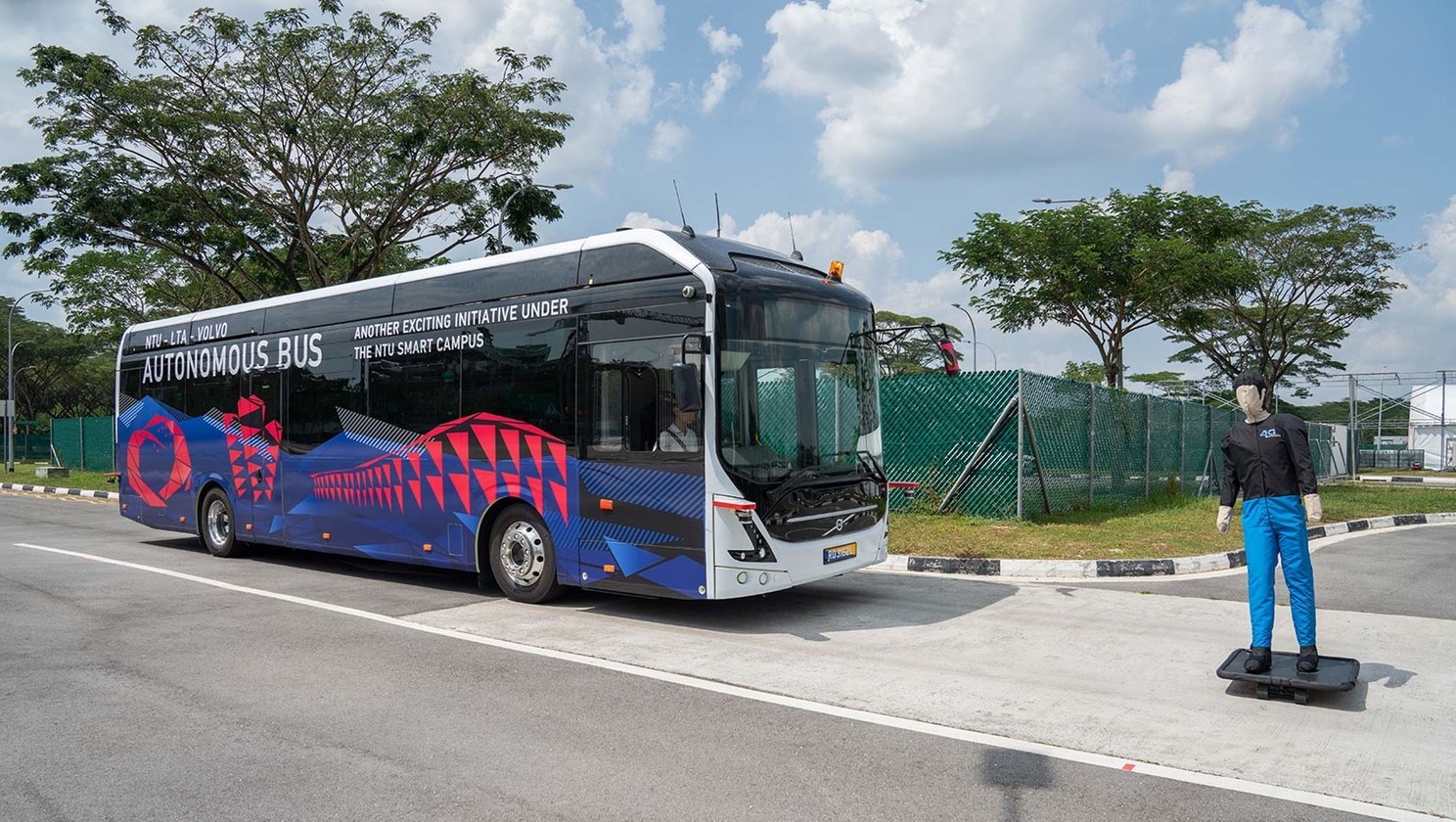
The single deck Volvo 7900 Electric bus can carry close to 80 passengers and is 12 meters long. Photo: Volvo
Autonomous electric buses developed by Volvo will soon be hitting the streets at Nanyang Technological University, Singapore (NTU Singapore).
This represents a milestone in NTU and Volvo’s development program, which falls under the university’s partnership with the Land Transport Authority (LTA) to develop and conduct autonomous vehicle bus trials for fixed route and scheduled services, according to a news release. The program was announced in October 2016.
The single deck Volvo 7900 Electric bus can carry close to 80 passengers and is 12 meters long. It comes equipped with a variety of sensors and navigation controls managed by what’s described as a comprehensive artificial intelligence (AI) system. The AI system is protected with cybersecurity measures to prevent intrusions.
The Volvo bus has undergone preliminary rounds of testing at the Centre of Excellence for Testing and Research of Autonomous vehicles at NTU (CETRAN). The next step is to test the bus at NTU and eventually extend the route beyond the campus for a second trial. The facility can replicate various elements of Singapore’s urban road conditions, such as traffic signals, multiple bus stops and pedestrian crossings, and tropical conditions such as driving through heavy rain and partially flooded roads.
“This fully autonomous electric bus will play a role in shaping the future of public transportation that is safe, efficient, reliable and comfortable for all commuters,” NTU President Professor Subra Suresh said, according to the release. “It will soon be tested on the NTU Smart Campus, which has been home to a number of innovations as a living testbed for technologies that impact the human condition and the quality of life.”
As part of the trials, Singapore’s public transport operator, SMRT, will play a key role in determining the roadworthiness of autonomous vehicles on public roads. SMRT will oversee the second test at a bus depot they manage. Here, the bus will operate in a real-world environment to assess its ability to autonomously navigate into washing bays and to park safely at charging areas.
Partner ABB will develop a smart fast-charging solution for the vehicles. Based on the OppCharge concept, ABB’s HVC 300P fast charge system is suited for autonomous charging in bus depots as well as in running traffic, and will be able to charge the buses in three to six minutes.
The buses also come equipped with a variety of sensors, including light detection and ranging sensors (LiDARs), stereo-vision cameras that capture images in 3-D, and an advanced global navigation satellite system that uses real-time kinematics. The system is also hooked up to an inertial management unit that acts like a two-in-one gyroscope and accelerometer, measuring the lateral and angular rate of the bus, improving navigation and offering passengers a smoother ride.
The AI system, developed by NTU researchers, will manage the sensors and GPS platforms.
“We are very proud to be showcasing our electric bus featuring autonomous driving technology,” Volvo Buses President Håkan Agnevall said. “It represents a key milestone for the industry and is an important step toward our vision for a cleaner, safer and smarter city. The journey toward full autonomy is undoubtedly a complex one, and our valued partnership with the NTU and LTA is critical in realizing this vision, as is our commitment to applying a safety-first approach.”

